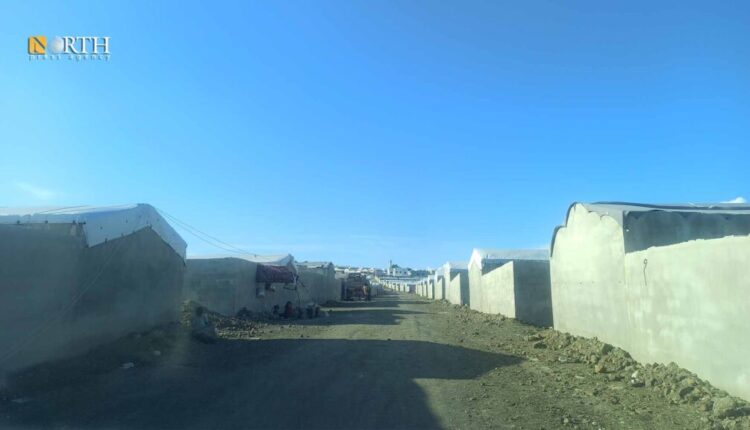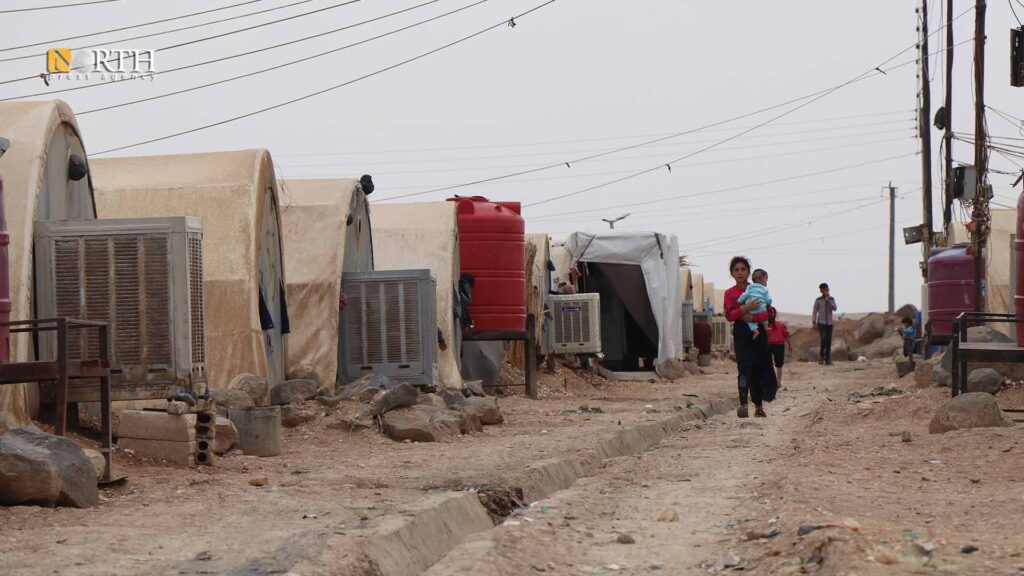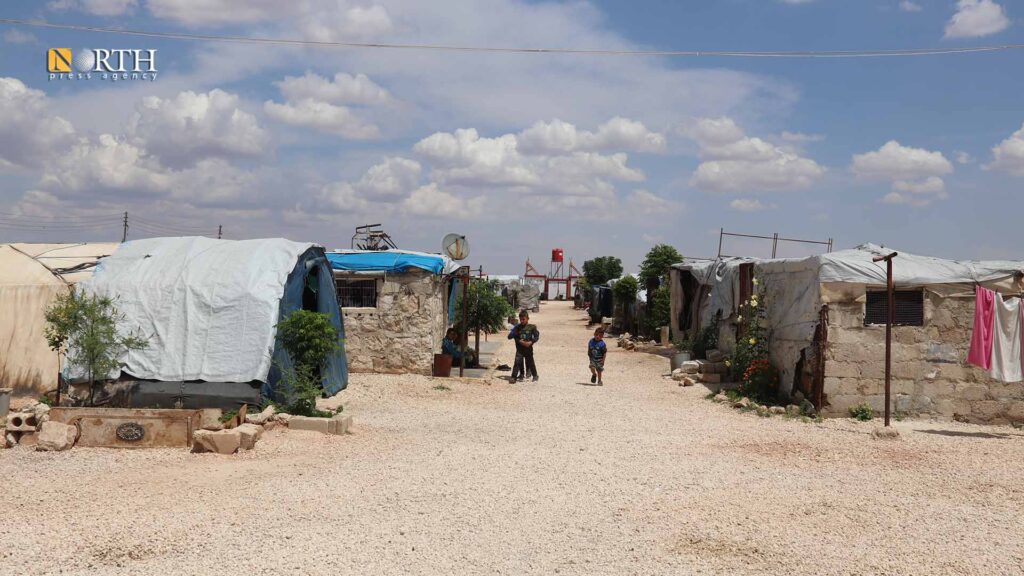
QAMISHLI, Syria (North Press) – Aboud Jaber stands in front of his tent in Washokani Camp, west of the city of Hasakah, hoping to return to his hometown Sere Kaniye (Ras al-Ain) north of Hasakah, where Turkey intends to settle other Syrian refugees ignoring the rights of its original inhabitants to return.
IDPs from northern Syria fear that they might not be able to return to their homes after the Turkish President Recep Tayyip Erdogan’s announcement early in May to resettle about 1.5 million Syrian refugees in the Turkish-held areas in northern Syria.
Jaber, who hails from Iraq, came to Syria 30 years ago after being displaced as a result of the Gulf War.
Jaber considers the city of Sere Kaniye his birthplace, just like the city of Basra.
He settled in Sere Kaniye, spent his childhood, got married, and had four children.
He recalls his life in Sere Kaniye before the Turkish occupation with the support of the Turkish-backed Syrian National Army (SNA) factions in October 2019 following a military operation called “Peace Spring”.
“The Turkish project of deporting the refugees to Syria aims to change the region’s demography, especially after displacing its original inhabitants,” Jaber said.
Strangers live in your home:
“We can’t return to our city because the extremist groups are living there, they will humiliate us, so it is better to stay in the camp,” Jaber added.
He believes that the recent Turkish project is a move to get rid of the Syrian refugees in Turkey, as “These settlements will be bases for Turkey on the Syrian soil.”

In the same camp, Sozdar Sheikhi, an IDP from Sere Kaniye and a schoolteacher in the camp, says that Turkey displaced the original residents to replace them with others.
“It is my right to return to my hometown, not to be homeless in this camp, these Syrian refugees should return to their own areas and not to ours.”
The Turkmen IDP from Sere Kaniye Nariman Ibrahim describes the decision to establish settlements as a “sentence of exile” against the original residents who were displaced from their areas.
She said, “It is difficult to see strangers living in your own house, while you are displaced residing in a camp.”
For three years, Hafez al-Hassan, another IDP from Sere Kaniye, has been living in Newroz camp, in the city of Derik in the far northeast Syria, with his wife and seven children.
He describes the Turkish project as a “new occupation” of their homes and lands.
“Turkey is responsible for everything that is happening in Syria because it supports terrorist groups, especially ISIS,” al-Hassan said.
IDPs mourn their homelands:
Al-Hassan holds the United Nations responsible for what is happening in his hometown. He called on the UN to put pressure on Turkey to withdraw from the Syrian lands it occupied and provide the necessary protection for the IDPs safe return.
In Newroz camp, the 63-year-old Hessiana Ali, an IDP from Sere Kaniye countryside, wonders about the fault she made to be forced to flee her area and live in camps under tents when seeing others living in her home.
The elderly wants to return to her own home and get out of the camp, which lacks the minimum necessities of life.
Also IDPs of Afrin residing in camps in the northern countryside of Aleppo have a similar stance regarding the Turkey’s plan.
The 58-year-old Ja’afar Suleiman, who hails from the city of Afrin residing in Sardam Camp, south of the village of Tel Susin, said, “Turkey wants to create strife between the Syrian people through its latest decision.”

Suleiman’s family and more than 300,000 people were forced to flee Afrin due to the Turkish military operation Olive Branch launched with the support of the Turkish-backed SNA factions in 2018.
Consequently, a part of the Afrin IDPs resorted to camps including al-Awda, Afrin, Barkhodan, Sardam, and Shahba, some resorted to 42 villages and towns in the northern countryside of Aleppo, and some others to cities in Jazira, Kobani.
According to statistics released by the Social Affairs and Labor Board of Afrin, which is currently operating in the northern countryside of Aleppo, 1,870 displaced families from Afrin are distributed in the aforementioned camps, and about 16,000 people are in neighboring villages and towns in Aleppo northern countryside.
Suleiman noted with anger to Turkey’s practices on Syrian soil, hoping that Russia and the US will intervene to stop this project.
As for Fadel Osso, an IDP from the countryside of Afrin, deporting about a million Syrian refugees to areas to where they do not belong is nothing but a “trick”.
